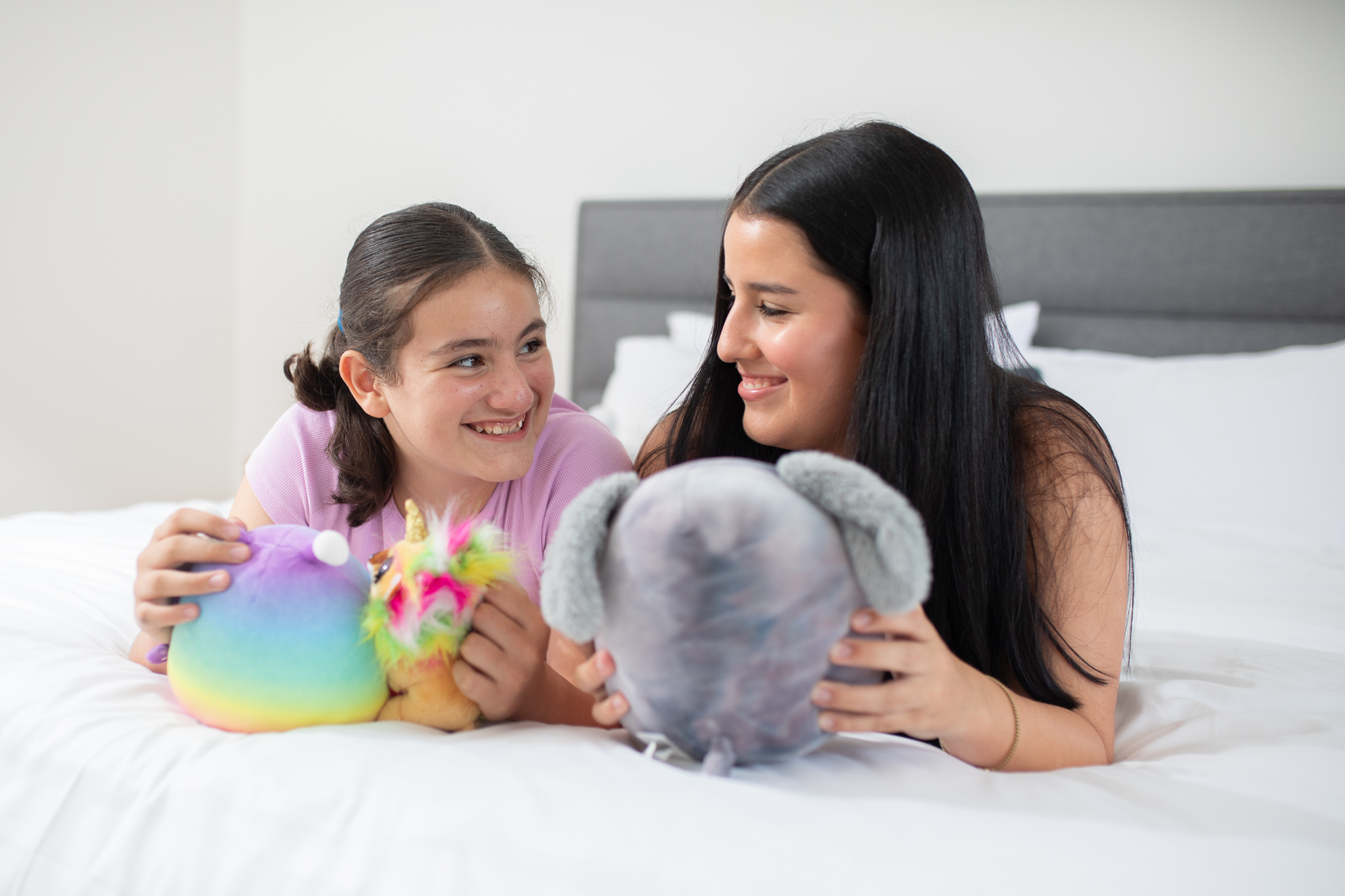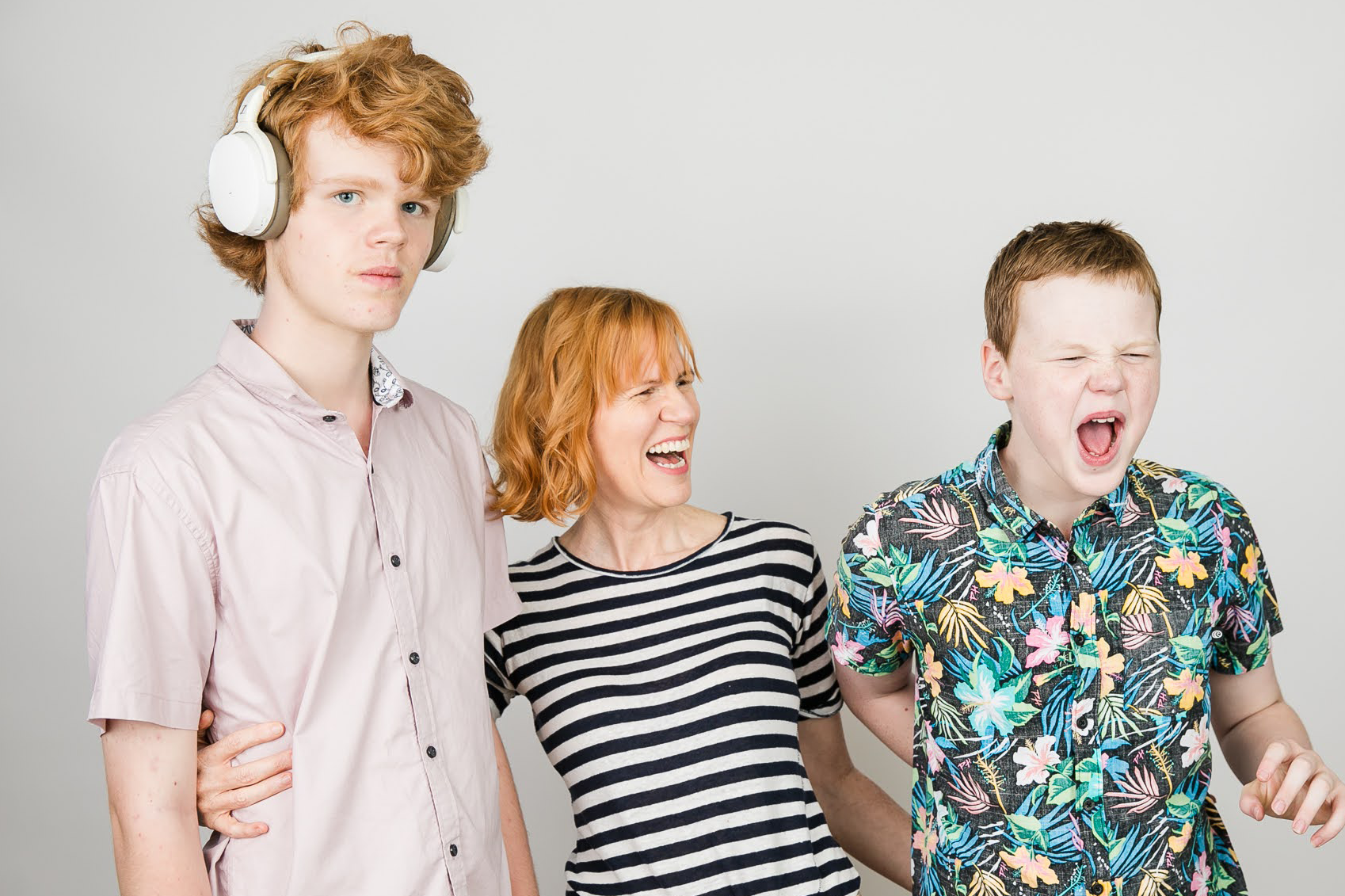Sharing an autism diagnosis in the school years

Sharing an autism diagnosis in the school years can be an overwhelming process for families, not to mention for the autistic students themselves. In this article, autism parent Nicole Hurley and autistic adult Jackson Trout share their perspectives on discussing autism within a school community.
Nicole's story
What factors influence your decision to disclose your child’s autism diagnosis to someone in their school community?
When deciding whether to tell someone at school about my child’s autism diagnosis, a few things can influence my choice.
First, I think about how it will help my child. If sharing means teachers and staff can better understand and support him—like knowing he might need a quiet space during sensory overload or help with transitions, excursions, or day-to-day life at school—it feels worth sharing. We have been very open and honest with our school and the staff very early on in our son’s primary school journey (a year before our son started school), as this has been the best way to ensure he receives the funding and support he needs.
Trust is a huge factor. If I feel like the teachers, parents, or peers will be supportive, will not make him feel singled out, and will have a better understanding of my son, I’m more likely to share. But if I’m not sure how they’ll react or if they have perhaps voiced their opinions about autism before, I will hold off. I want to make sure it’s helpful, not something that might lead to further misunderstanding or judgment.
I also consider how comfortable my child is with certain people knowing. If he’s okay with it, I’m more open to discussing it. But if it makes him feel anxious or different, I’m more careful. How he feels about sharing his diagnosis is really important, particularly as he gets older into the tweens/teens age group, where he himself is starting to share with his friends and classmates.
Different members of a school community (e.g., teachers, support staff, other parents) will require different information about a child’s diagnosis. How can parents/carers adapt their approach to discussing autism with different people?
As a parent, I think it’s really important to tailor how we talk about our child’s autism depending on who we’re talking to in the school community since different people need different levels of understanding.
For teachers and school staff, I usually focus on how my child learns best and what specific strategies can help in the classroom and school environment. They need to know about any sensory triggers, communication challenges, or behavioural cues that might come up during the school day. I always bring my son’s allied health team into these conversations, which helps bring practical, professional tips that can make the teacher's job easier while supporting my child, like what kind of instructions work best or if he needs breaks when things get overwhelming.
For support staff, like the school counsellor, learning support or aides, we might discuss his emotional needs and how they can help him feel comfortable and secure at school. They often play a role in making sure he feels included, so understanding his social and emotional challenges is important. I might also talk about things like how he handles transitions or anxiety so they know what to look out for.
When it comes to other parents, I usually keep things more general. If it comes up, and it’s a situation like a play date where they may need extra information about my son, I might share that my child is on the spectrum and explain a little about what that means for him in general but also what might apply to the environment/situation. I want to give them enough understanding so they have a better understanding, and also, they can encourage their children to be more inclusive without overwhelming them with details that aren’t really necessary.
For me, it’s about giving each group just the right amount of information to help them support my child in their role, without overloading them or making them feel like they need to be experts.
How can parents/carers navigate situations where an individual or group is not supportive of an autistic child?
Navigating situations where someone isn’t supportive of my child can be really challenging, but over time, I’ve learned a few approaches that help. And sometimes, it’s easier said than done!
First, I try to stay calm and patient, even if frustrating. People sometimes aren’t supportive because they don’t understand autism or they have misconceptions. If I feel like they’re open to learning, I’ll gently start the conversation with them about my child’s needs and quirkiness, explaining that autism can look different in every child. Sometimes, people just need more information and insight to adjust their mindset.
If the lack of support comes from school staff, I advocate firmly but respectfully. I’ll set up a meeting to discuss my child’s needs, bringing in his allied health experts as support, and highlighting the importance of inclusion and their responsibility to provide accommodations for my child. If necessary, I’ll raise my concern to the principal/executive team at the school and reinforce plans that we have in place such as individualised education plans (IEPs), to back up my case. Sometimes, bringing in a support professional or advocate can help, too.
It's tougher when it comes to other parents or children. If a parent or child isn’t being kind or inclusive, I’ll address it directly and in the moment. Sometimes, I struggle to keep cool, calm and collected, especially when you see firsthand how your child is treated. Walking away is always a good option too!
In situations where someone just isn’t going to be supportive, I focus on building up a strong support system elsewhere. It's very important to make sure my son has people around him who are accepting and encouraging. While I can’t change everyone’s attitude, I can make sure my son knows he’s valued and surrounded by people who care about him.
Teaching autistic children skills around self-advocacy and disclosing their own autism diagnosis is an important ongoing process. How have you navigated this process?
Teaching my child self-advocacy and how to disclose his own autism diagnosis has been an ongoing journey, and we have tried a few times to have discussions about what autism means, but he was either too young or his cognitive understanding wasn’t really ready for these discussions. We have focused more on helping him understand his own needs without necessarily labelling them as autism or ADHD or dyslexia. For example, we have worked with him on how to recognise when he’s feeling overwhelmed or when he needs a break. We encourage him to use certain phrases or signals with his teachers or friends, like asking for some quiet time when things get too loud, or he needs a quiet break. I want him to feel confident that it’s okay to ask for what he needs, even if it looks different from what other children might be doing.
As he’s gotten older, we’ve started talking more about his autism in a way that makes sense to him, so that he can explain it in his own words. We’ve explained that his brain works a little differently, and that it comes with both challenges and strengths. I try to give him language he can use if he ever wants to explain it to someone else, like saying, “I have autism, which means I might need extra time to understand things, but I’m really good at focusing on things I love like Minecraft or Pokemon.” I let him decide when and how much to share, and I always make it clear that he doesn’t owe anyone an explanation unless he feels comfortable.
The hardest part is helping him navigate situations where people don’t understand or might react negatively, and I am not there to help him navigate these sometimes tricky conversations. I try to prepare him for that by practicing different scenarios, so he knows how to respond if someone isn’t supportive. Learning to self-advocate will be a process that grows with him, and we will continue to try to give him the tools to navigate these conversations about who he is and to speak up for himself when he’s ready.
What advice do you wish you had been given when you began sharing your child’s autism diagnosis with their school community?
When our child was diagnosed, we were given the advice by professionals to tell the school early. I contacted our primary school a year prior to our son starting kindergarten, which allowed the school to get to know us as a family, and also spend time with our son in his preschool and early intervention centre prior to starting. This was so valuable to his transition into school and allowed the school to get to know him, we applied early for integrated funding, which gave our son the best start to his schooling journey as they were able to be ready for his orientation days and prepare the teacher for day one.
I’ve learned that working together and keeping communication open is key to helping my child thrive at school and this is an ongoing process each year as they move grades and teachers. Some years will be better than others, and some will be more challenging!

Jackson's story
Did you ever disclose your autism diagnosis to people in your school community? Why/why not?
No, I never did, because I felt that I didn’t need to. Throughout high school I was in an early morning class with other kids on the spectrum. All the other students knew what kind of class it was so there was a silent acknowledgement.
What can autistic students do to prepare themselves to discuss their autism with others? And, how can they seek support to navigate this process, and the reactions of other people, with confidence?
Before anything, make sure you can communicate your words properly and clearly. If they can’t understand you, you can’t explain yourself. Aside from that, you need to have a good idea of what you need regarding support. You also need to be self-critical and interrogate yourself and ask if you really need this specific support from others. It’s always good to strive to be self-reliant.
What lessons or skills did you gain from discussing autism with others in your school community?
To be completely honest, I never really disclosed my diagnosis with others in my school. None of the other students showed any interest in the fact that I had Asperger’s Syndrome (autism).
What advice would you give to autistic students who want to share that they are autistic with people in their school community?
It depends on whether the other students are interested. If they are, then work on yourself to articulate what it is that you have and how it affects you. It’s important to be patient with those who are ignorant (just as you would appreciate someone showing patience and forgiveness for your ignorance, so should you show common courtesy).
How can students, teachers and other members of a school community be supportive of an autistic person who discloses their diagnosis?
I would suggest listening to the autistic person and letting them define their needs, within reason of course. I also would suggest having the other students learn about what autism is and why people on the spectrum may act in certain ways so to avoid possible confrontations that arise because of a lack of understanding.
Most of all, from my perspective, it’s important to let the person on the spectrum know that their diagnosis is no ‘big deal,’ in that they shouldn’t ‘other’ themselves because of their diagnosis. It’s better for them not to see themselves as a diagnosis and to see themselves as an individual who, despite their difference/disability, are still part of a student body.

For more information, you can visit the following links:






